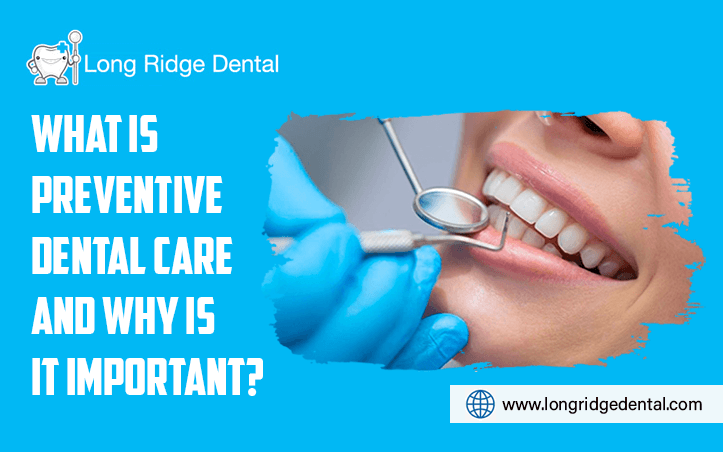
What is preventive dental care and why is it important?
Why Is Prevention Such a Vital Step?
Such issues can be identified early and handled less invasively with routine preventative dental care and treatment. Also, this strategy offers the most financial value because prevention is preferable to cure.
Gum or periodontal disease is a dangerous illness that can cause various issues in the mouth. It is an inflammation that occurs in the gums due to periodontal disease. If left untreated, this illness can cause the soft tissue and bone around the teeth to deteriorate, resulting in tooth loss.
An all-encompassing regimen to protect your well-being includes maintaining teeth and gums that are strong and healthy.
What are the perks of preventive dental care?
You can benefit from routine preventive dental care checkups for your oral health in the following ways:
- Reduces your chance of getting gum disease, tooth decay, and other more severe dental issues.
- Assists in promoting proper oral hygiene practices, including flossing and brushing your teeth at least twice daily.
- Early dental issue discovery may lower the need for treatment and related costs.
- Permits your dentist to thoroughly examine your mouth, jaw, neck, etc., to find any associated issues.
- Assists in reducing oral issues caused by some long-term medical illnesses. Various diseases and conditions, including diabetes, osteoporosis, certain malignancies, and eating disorders, can impact dental and oral hygiene health.
- For individuals with chronic conditions, routine preventative dental treatment is essential for maintaining general health.
What can I anticipate from preventative dental care?
The adage “prevention is better than cure” remains true regarding preventive dental care. You must take the essential precautions to avoid developing severe dental issues for your general health and welfare.
For Preventive Dental Care, follow the following steps:
These oral hygiene precautions include:
Routine dental checkups at the office should be done twice a year. Professional in-clinic cleaning should also be done twice a day at home.
- Diagnostic tests: To find minor problems before they grow into more serious, unpleasant concerns
Oral cancer screening is recommended for the early identification and treatment of gum disease. Preventive dental care and training are also recommended for elderly individuals, including information on denture care and suitable cleaning techniques.
- Oral hygiene education: encouraging the proper diet and nutrition for healthy teeth and gums.
- Customized mouth guard fittings: to safeguard the mouth and teeth of youth who often play sports.
Benefits of Preventive Dental Care in Children:
Child dental care is so essential at the initial time of the teeth growing age of an infant.
Reduce the chance of dental decay: Avoid cavities, which are tiny holes in teeth brought on by tooth decay. Your child may develop cavities as the bacteria in plaque buildup on their teeth and release an acid that weakens the tooth enamel.
Maintain healthy tooth enamel: Your teeth need healthy enamel to be protected. The human body creates the most complex tissue in enamel, a thin covering of one’s teeth. By maintaining a clean, healthy enamel layer, preventive dental care will free your teeth of plaque, bacteria, and cavities. Tooth sensitivity can be decreased with healthy enamel.
Combat gum disease: Gingivitis is an early stage of gum disease, and plaque is the cause of many dental problems. A plaque under the gumline can cause gum disease, with several negative symptoms like bleeding and receding gums. Child dental care trainers are trained and equipped to clean beneath your child’s gum line, which can help stave off gum disease.
Improved breath is another benefit of preventive dental care for your child. For a healthier and cleaner mouth, food debris, bacteria, and plaque must be eliminated. As a result, they might experience an increase in confidence and energy throughout the day.
Benefits of Root Canal Treatment:
Have you ever had dental pain last through the night? Long-lasting toothaches, serious tooth falloff, and even complex teeth are among the usual oral health issues that people encounter and can be very uncomfortable.
Endodontists frequently employ root canals, or endodontic therapy, to treat such diseases. If you are experiencing this process for the first time, you wonder what it entails.
The first step in a completely painless operation known as a root canal is to remove a diseased or damaged area from the root cavity. A typical polymer material is used in root canal therapy to fill the cavity once cleaned and sanitized.
You must be logged in to post a comment.